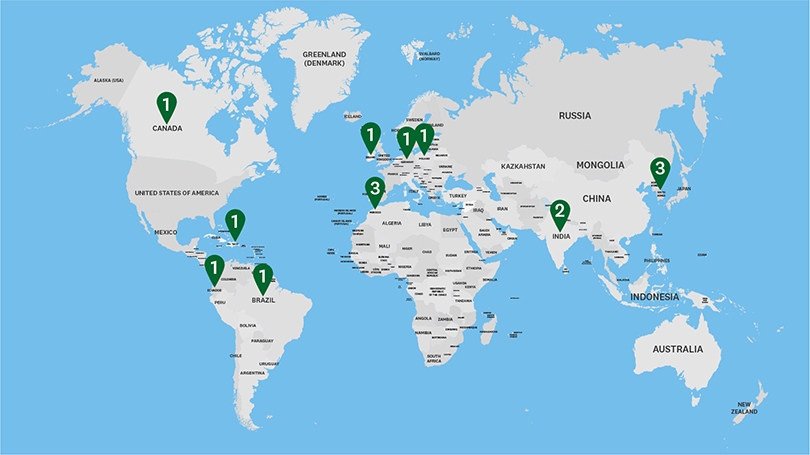Dartmouth has been named a top producer of Fulbright scholars by the U.S. State Department.
“This achievement is a testament to your institution’s deep commitment to international exchange and to cultivating stronger relationships between the United States and the more than 160 countries that take part in the Fulbright program,” writes Marie Royce, assistant secretary of state for educational and cultural affairs, in her congratulatory letter to President Philip J. Hanlon ’77. “Dartmouth College’s place among the Fulbright program’s top producers clearly demonstrates your dedication to preparing Americans for today’s interconnected world and dynamic global economy.”
“We are immensely proud of our many Fulbright scholars,” says President Hanlon. “The chance to study and teach internationally allows them to apply and advance their educations in productive and innovative ways, and extends Dartmouth’s global reach.”
The State Department’s most recent “top producers” list includes 11 recipients who received their research/study grants through Dartmouth last year and are now living and working abroad. Seven additional grants were made to Dartmouth applicants last year to teach English outside the U.S.
Dartmouth’s 2016-17 Fulbright grantees are living and working in 12 countries on four continents. This year, awards were made to 15 Dartmouth applicants; they will study or teach in 10 countries on five continents.
“Having Dartmouth in the Fulbright top producers list reflects the concerted effort that Dartmouth’s Fellowship Advising Office has made in recent years to make both current undergraduates and alumni aware of fellowship opportunities,” says Associate Director of Undergraduate Advising and Research Holly Taylor ’87, who advises Dartmouth students and alumni through the Fulbright application process. “As a result of these efforts, both the number of applicants and the number of awards have gone up.”
The Fulbright program is described on its website as “the U.S. government’s flagship international educational exchange program, sponsored by the Bureau of Educational and Cultural Affairs of the United States Department of State. Since its inception in 1946, the program has provided more than 300,000 participants—chosen for their academic merit and leadership potential—with the opportunity to study, teach and conduct research, exchange ideas and contribute to finding solutions to shared international concerns.”
Charlotte Albright can be reached at charlotte.e.albright@dartmouth.edu
